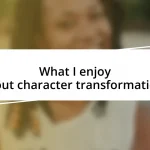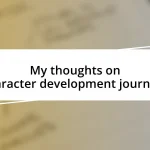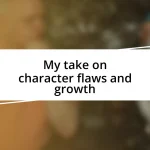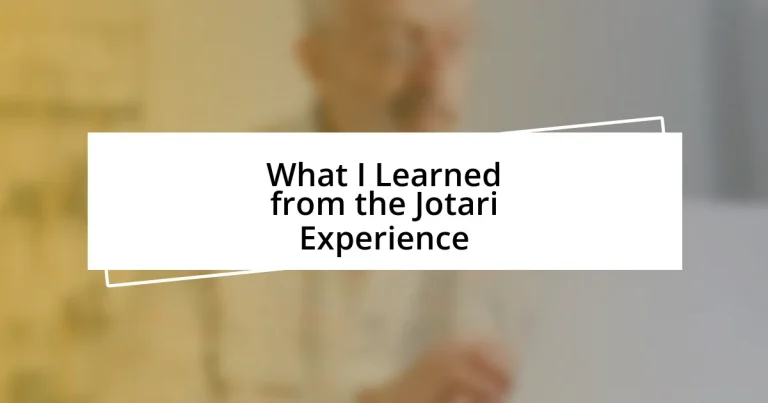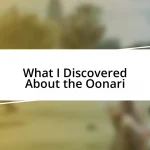Key takeaways:
- The Jotari Experience fosters deep emotional connections and personal reflection, allowing participants to confront real-world issues in a safe environment.
- Effective communication and diverse perspectives are crucial for team dynamics, enhancing collaboration and leading to innovative solutions.
- Emotional overload and navigational challenges require adaptability, empathy, and analytical skills to fully engage with the immersive experience.
- Personal growth is highlighted through self-awareness, resilience, and vulnerability, which strengthen connections and promote a supportive atmosphere.
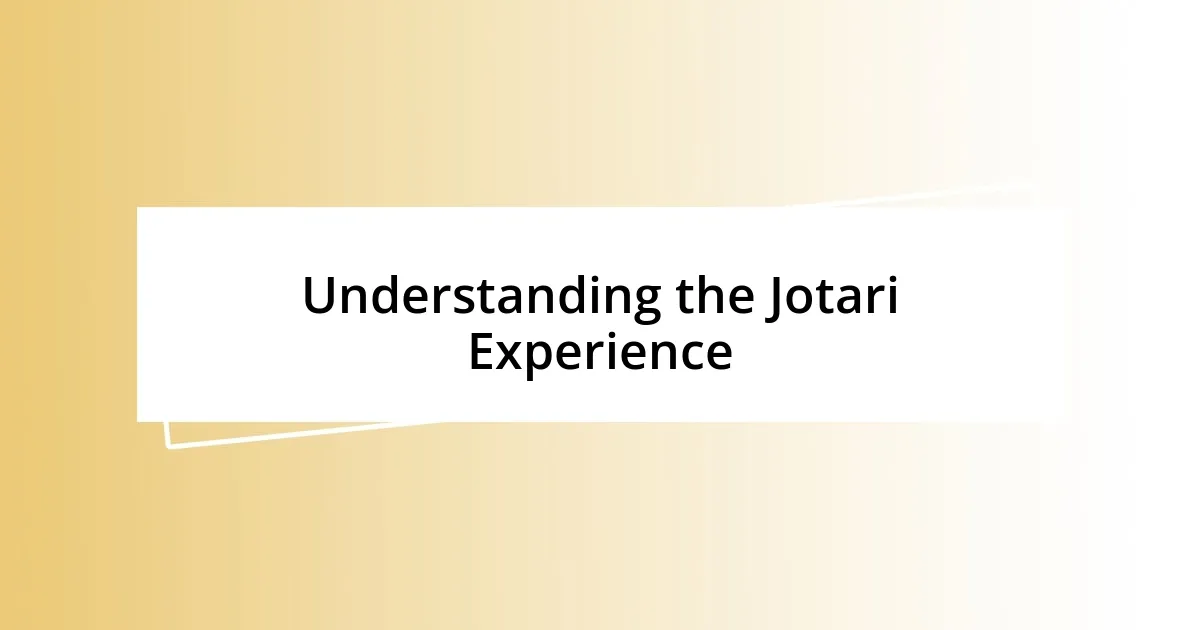
Understanding the Jotari Experience
When I first encountered the Jotari Experience, I was struck by how immersive it felt. It’s almost like stepping into a different world where every detail, from the vibrant colors to the subtle sounds, pulls you deeper in. Have you ever thought about what it means to truly engage your senses? That’s what Jotari offers—an opportunity to fully absorb and appreciate each moment.
As I navigated through the virtual landscape, I found myself reflecting on my own experiences and emotions. It’s fascinating how such environments can provoke deep feelings, making us confront our real-world issues in a safe space. I remember one moment vividly—while exploring a serene meadow inside the experience, I felt an unexpected wave of calm wash over me, reminding me of simpler times in my life. Have you ever let a virtual or augmented environment help you process your thoughts or emotions?
By analyzing various aspects of the Jotari Experience, I realized it wasn’t just about entertainment; it was about connection. It connected me to my own memories and to the shared experiences of others within the community. Isn’t it incredible how technology can bridge gaps, creating a shared pathway for growth and understanding? In these moments, I felt a part of something much larger than myself, which is a testimony to the profound impact of the Jotari Experience.
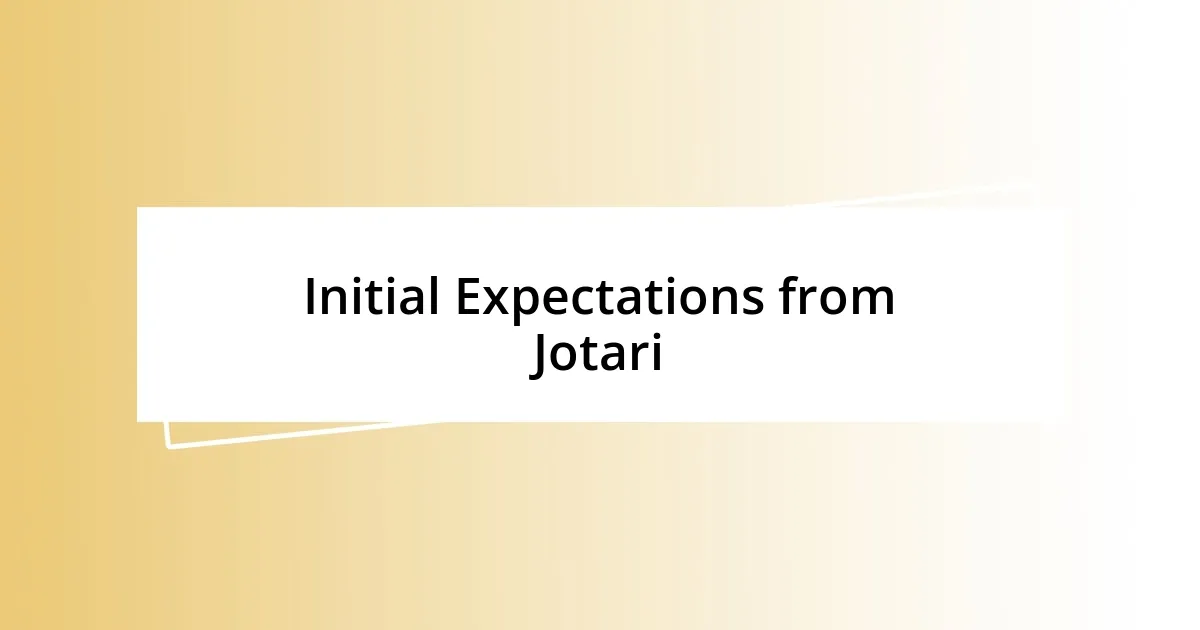
Initial Expectations from Jotari
Initially, I had high hopes for what the Jotari Experience would offer. I imagined it to be an escape from daily life, a way to transform my mundane routine into something magical. In my mind, I pictured engaging activities that would not only entertain but also immerse me in a fascinating narrative, and I was eager to see how it would unfold.
As I delved deeper, I was surprised by the emotional depth woven into the experience. I thought I would merely enjoy the visuals and sounds, but instead, I found myself connected to the narratives in a profound way. When I encountered a scene that mirrored a pivotal moment in my own life, it hit me like a ton of bricks—how could a virtual experience resonate so deeply? It dawned on me that the creators put thought into crafting connections that transcend the screen.
Comparatively, I noted my feelings shifted from mere anticipation to genuine curiosity about the underlying messages. I started questioning what stories were being told and how they might relate to my own journey. Was it just me, or did others feel this emotion as well? The thrill of exploration turned into a quest for understanding, transforming my initial expectations into a deeper inquiry into my own life and connections with others.
| Initial Expectation | Your Experience |
|---|---|
| Entertainment value | Emotional connection |
| Immersive narrative | Personal reflection |
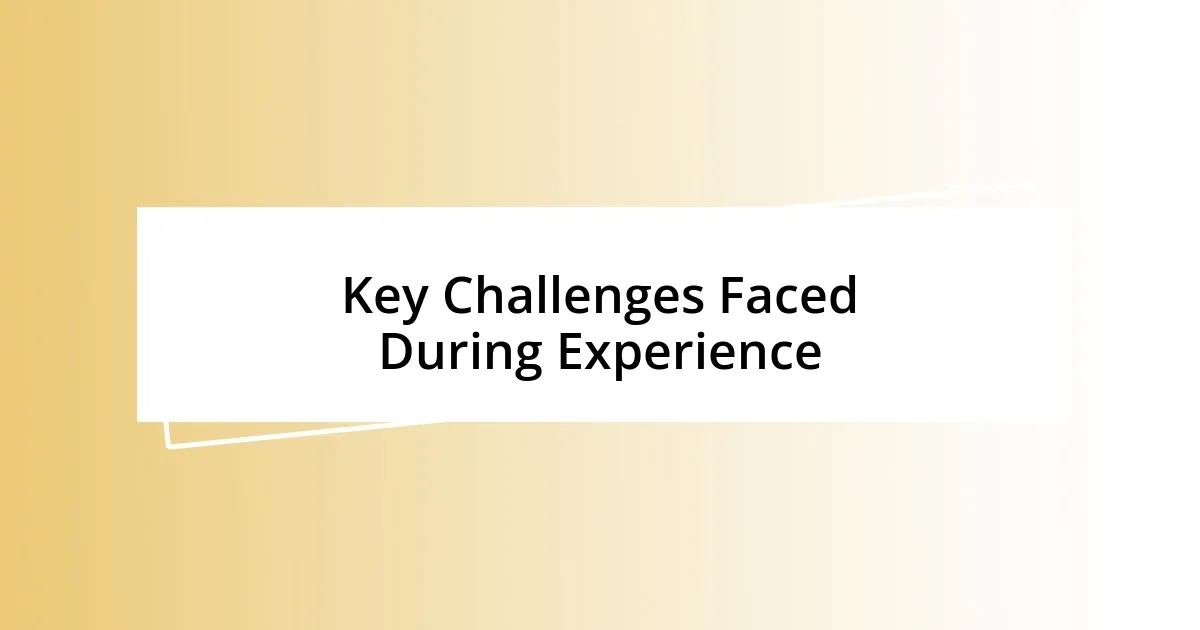
Key Challenges Faced During Experience
While diving into the Jotari Experience, I encountered several unexpected challenges that tested my ability to fully engage with the environment. At times, the emotions stirred by the experience felt overwhelming, making it hard to process my thoughts. I remember one instance where a powerful scene triggered a rush of nostalgia, leaving me momentarily lost in my own memories. Balancing that emotional whirlwind with the task of appreciating the surroundings was a delicate dance.
Here are some key challenges I faced during my time with Jotari:
- Emotional Overload: Certain moments triggered intense feelings that required reflection and understanding.
- Navigational Learning Curve: The intricacies of the virtual environment led to occasional confusion, pulling me out of the immersive experience.
- Integration of Experience: Grasping the lesson embedded in each scenario was sometimes difficult, as I wrestled with my emotional responses.
- Maintaining Focus: With so many sensory inputs, it was challenging to focus on one element and truly engage with it.
- Connection with Others: Finding common ground with other participants proved tricky as we all experienced the journey uniquely.
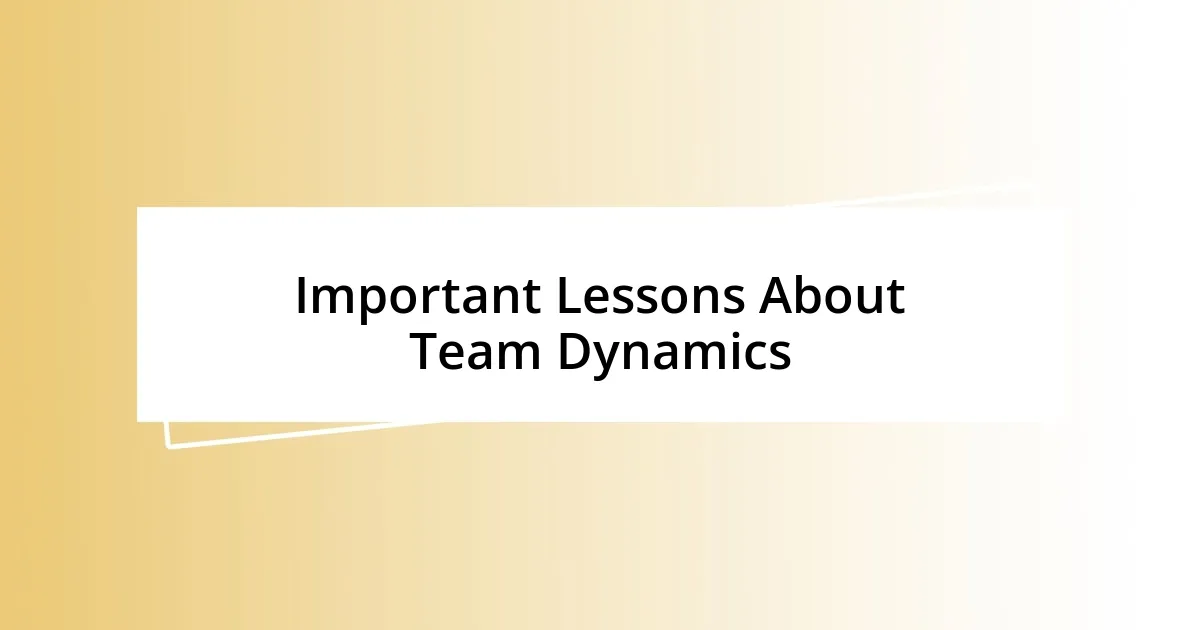
Important Lessons About Team Dynamics
During the Jotari Experience, I learned that effective communication is vital for team dynamics. I remember being part of a group activity where miscommunication led to chaos. The initial excitement quickly turned into confusion as we struggled to align our thoughts. This made me realize that articulating ideas clearly is essential to keeping everyone on the same page. Have you ever found yourself in a similar situation? It’s frustrating, but it taught me how crucial it is to cultivate open dialogue in any collaborative setting.
Another important lesson I absorbed involved the significance of diverse perspectives. Working with a group of varied backgrounds created a melting pot of ideas. One participant’s unique approach sparked an innovative solution that none of us had considered before. It got me thinking—what would our outcome have been if everyone thought the same way? Embracing different viewpoints not only enriches the process but often leads to unexpected breakthroughs.
Lastly, I learned that trust is the backbone of any team’s success. During a particularly challenging segment of the experience, we had to rely on one another to achieve our goals. I felt vulnerable, yet it was liberating to place that trust in my teammates. It sparked real conversations about each person’s strengths and weaknesses. How can we foster such trust in our daily collaborations? I believe it starts with understanding and supporting one another, creating an environment where everyone feels valued and safe to express themselves.
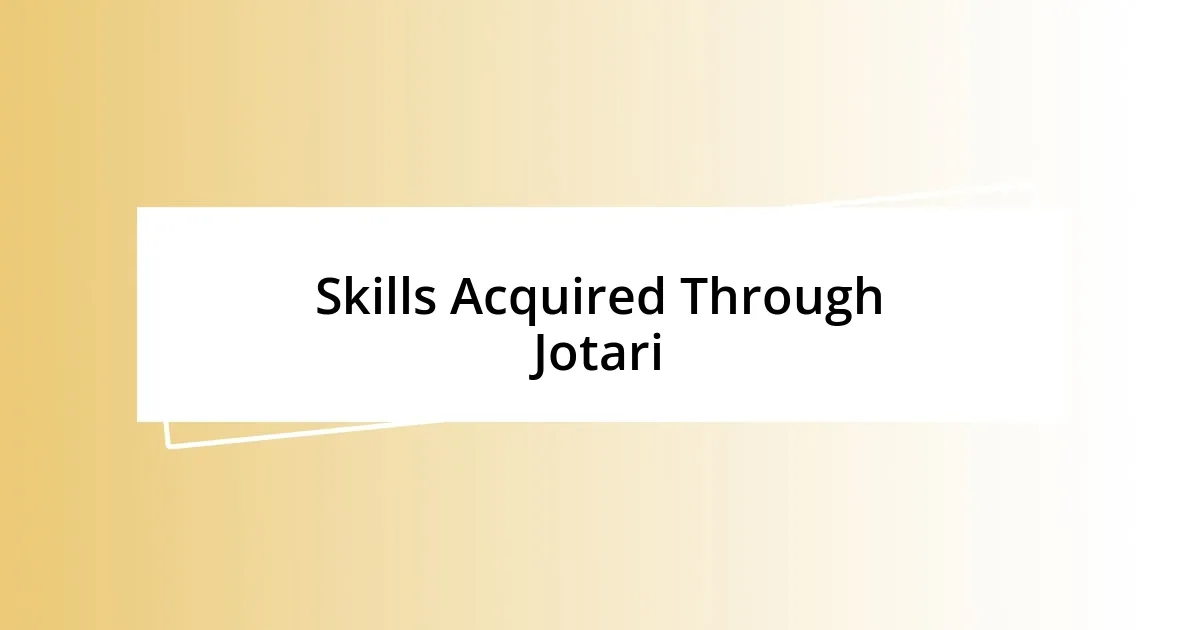
Skills Acquired Through Jotari
Absolutely! Reflecting on the Jotari Experience, I discovered that adaptability is a vital skill I’ve honed. There were moments when the virtual environment shifted unexpectedly, requiring me to think on my feet. I remember feeling a rush of adrenaline as I navigated through a sudden change in scenery. It was almost like being a child again, learning to ride a bike and adjusting to balance mid-ride. Have you ever felt that rush of needing to adapt quickly? It was exhilarating!
I also realized the importance of empathy. Engaging with various scenarios brought up emotions not only in myself but also in others around me. One time, I observed a participant deeply moved by a scene that mirrored their personal experiences. It struck a chord with me, prompting me to pause and reflect. In that moment, I learned that understanding someone else’s perspective can foster deeper connections and enrich our own experiences. How might our lives change if we approached everyday conversations with that level of empathy?
Lastly, I picked up some critical analytical skills. With each scene, I found myself not only absorbing the story but also deconstructing its underlying themes and messages. During a particularly rich encounter, I felt compelled to connect the dots between the narrative and my own life. It was like being a detective in my own mind, piecing together clues. This analytical lens has not only enhanced my appreciation for storytelling but also made me more mindful about the lessons I gather from everyday situations. Have you ever approached an experience with such scrutiny? It truly transforms how we perceive the world.
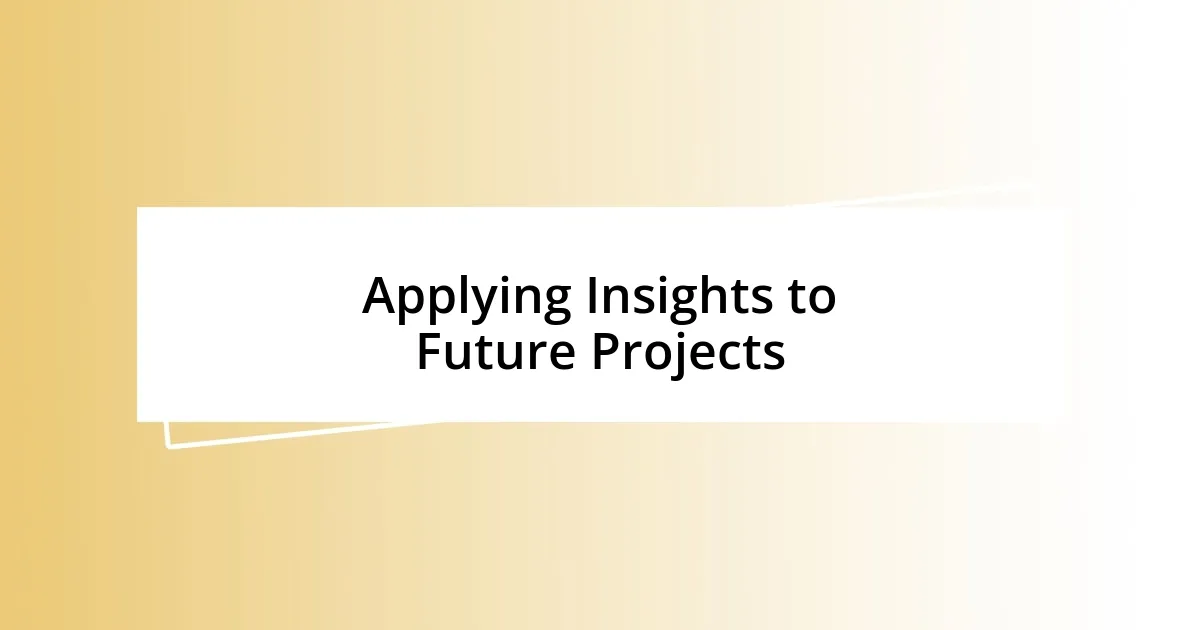
Applying Insights to Future Projects
Reflecting on the insights gained from the Jotari Experience, I find myself eager to apply these lessons to future projects. For instance, after recognizing how vital communication is, I plan on implementing regular check-ins with my team members. This practice not only ensures everyone’s voice is heard but also keeps momentum swinging in a cohesive direction. Have you ever felt the frustrations of being out of sync with your group? I certainly have, and I believe building that habit can alleviate a lot of miscommunication-induced stress.
Additionally, the power of diverse perspectives has ignited a passion in me for fostering inclusivity in project settings. I’ve started consciously inviting feedback from those who might not typically share their thoughts. During a recent brainstorming session, one quieter colleague shared an idea that shifted our entire approach. It was a moment of realization—how many gems do we miss by not asking varied voices for their input? Cultivating this atmosphere can lead to more creative and effective outcomes.
Finally, the importance of trust is something I carry forward with me. I intend to create a space in my future projects where vulnerability is welcomed. During the Jotari Experience, I noticed how sharing fears about potential failures sparked meaningful connections among team members. It brought a sense of camaraderie that was palpable. What if we all embraced that openness? I believe it would not only enhance collaboration but also build lasting relationships that withstand challenges.
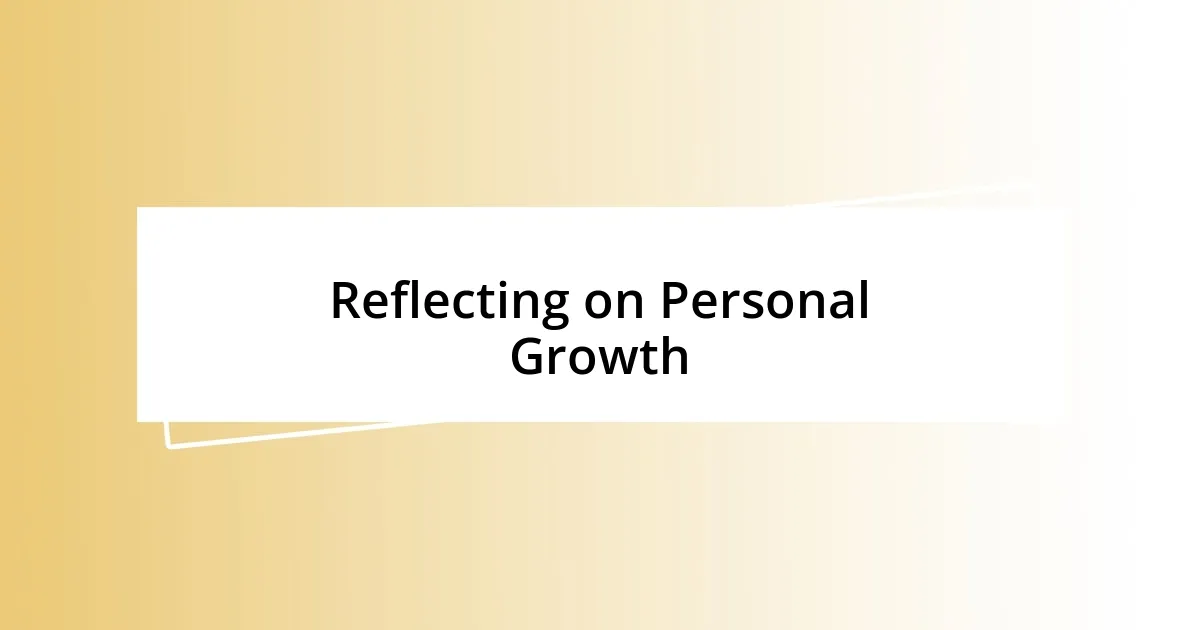
Reflecting on Personal Growth
Reflecting on personal growth has been a profound journey for me, especially in the Jotari Experience. I noticed how cultivating self-awareness shifted my perspective. During one session, I unexpectedly confronted a fear of judgment, which forced me to be vulnerable in front of others. That moment was liberating—have you ever felt that weight lift when you let your guard down? It’s as if you’ve opened a door to a new room of understanding within yourself.
I’ve also come to value resilience on a deeper level. Facing challenges in real-time during the experience pushed me to stay calm under pressure. I vividly remember a moment when a technical glitch took us all by surprise; my heart raced, but instead of panicking, I felt an urge to problem-solve. This experience taught me that resilience isn’t just about bouncing back; it’s about embracing the chaos, figuring it out, and moving forward. How do you cultivate resilience in your own life?
Lastly, I discovered the richness of vulnerability as a tool for connection. I often held back my thoughts for fear of appearing naive. But sharing a moment of uncertainty during a discussion not only felt freeing, it also encouraged others to open up. Can you recall a time when vulnerability changed the way you connected with someone? For me, that experience emphasized the importance of being authentic; it’s a bridge that fosters meaningful relationships.
